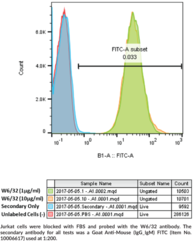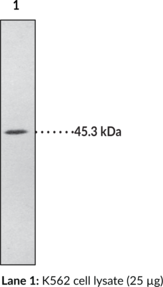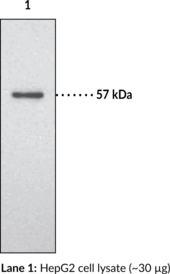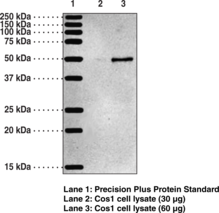Description
Major histocompatibility complex (MHC) molecules, also designated human leukocyte antigen (HLA) molecules, are cell-surface receptors that bind foreign peptides and present them to T lymphocytes.{33427} MHC class I molecules consist of two polypeptide chains, an α or heavy chain, and β2-microglobulin, a non-covalently associated protein.{28687} Cytotoxic T lymphocytes bind antigenic peptides presented by MHC class I molecules.{33425} Antigens that bind to MHC class I molecules are typically 8-10 residues in length and are stabilized in a peptide binding groove.{33426} HLA-class I MHC antigens are intrinsic membrane glycoproteins expressed on nucleated cells and non-covalently associated with an invariant β2-microglobulin. They carry foreign determinants important for immune recognition by cytotoxic T cells and are thus important for antiviral and antitumor defense. {33425} Human HLA-class I antigens are represented by HLA-A, HLA-B, and HLA-C molecules
Synonyms: HLA-A|HLA-B|HLA-C|Major Histocompatibility Complex Class I
Immunogen: Cell membranes of human tonsil lymphocytes
Formulation: 100 µg of protein G purified IgG
Isotype: IgG2
Applications: FC and IP
Origin:
Stability: 365 days
Application|Flow Cytometry||Application|Immunoprecipitation||Product Type|Antibodies|Monoclonal Antibodies||Research Area|Immunology & Inflammation|Adaptive Immunity||Research Area|Infectious Disease|Viral Diseases




